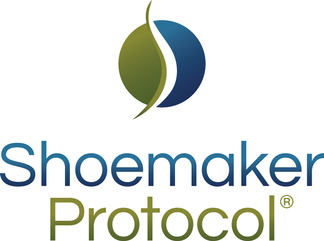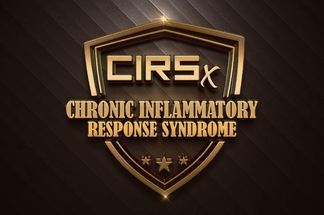As I See It - Part 1
February 19, 2014
Today we introduce a new feature for viewers of www.survivingmold. Twice a week I will present an opinion on current issues facing mold and medicine. In a few pages I hope to discuss what is going right with today’s world but I suspect there will be some discussion of what isn’t right as well.
Understanding that my opinion isn’t shared by all, I hope that a dialogue with readers will be possible. Please address comments about these essays as you would a letter to the editor by sending them to the website. Differences of opinion are welcome provided that the basis for those differences is presented. Civil conduct will be expected.
RC Shoemaker MD
Some questions that will be examined include the following: Can we define quality medical care? Can we share with others how to be a good biotoxin doc? Who can we trust to lead our research efforts? And what is good research anyway?
These topics are ones with many opinions. We want to explore the opinions on pertinent questions on mold and medicine on this site after weighing in with our own. We will be asking our certified physicians to share their thoughts and welcome contributions from others. Our first opinion essay focuses on diagnosis and those who make it. Let us know what you think.
Editor
Diagnosis and the diagnostician
Dr. Allan Detsky and his collaborators from the Institute of Health Policy from University of Toronto write in JAMA 2013; 310:579-80 (see link here) on the Evolution of the Master Diagnostician. He doesn’t specifically address chronic inflammatory response syndromes or any other medical condition. I don’t know Dr. Detsky; indeed have never had the pleasure of conversing with him. I just think that his views about the qualities needed in the new diagnostician are off base and as they form the basis of his opinion about medical education and are published in an esteemed medical journal, I must differ. Against his ideas of the nobility and integrity of the medical profession are the unfortunate realities of medicine in the current era of regulation of thought and practice where third party opinions intrude into science and bias regularly seeps in from the administrative, financial and commercial sewers.
He discusses three prototypes of excellent clinicians, one each from past, present and future. His Conclusions are unobjectionable as far as they go. It is the things he leaves out that concern me. I acknowledge that perhaps I have become too cynical about the process of health care delivery for those with CIRS. I just don’t see much nobility in provision of health care any more.
Dr. Detsky frames his viewpoint around three basic questions he thinks patients ask. What is wrong with me? What treatment will help me? Will I recover? While I agree, I think these questions are just a start in what is important to those with chronic, fatiguing illnesses.
I note he did not include a few other questions that patients pose these days, including: “Did I receive quality health care in today’s visit/hospitalization? Did the doc listen to me? Did the doc care about me as a person?”
I submit that the Master Diagnostician needs to know these answers as well. They reach beyond an aspiration to be a master diagnostician – indeed they involve the journey to becoming a physician in the holistic sense in which a well patient is the sole goal.
According to Dr. Detsky and his colleague, the “past” physician has knowledge of medicine built on his wonderful recall of the literature and ongoing experience with his patients. The physician of the “present” has limited follow-up, but functions well in hospitalist setting, having helped distraught families for years with her communication skills and helping her colleagues with her PubMed-based knowledge of illnesses. The ace doc of the “future” also is experienced. He uses the electronic health record and checklists to help him in his search for probabilities of immediate answers to complex presenting problems.
Dr. Detsky suggests that all physicians need to receive inputs regarding their judgment, seeking external systems to help them avoid errors of thinking and analysis, though who provides those inputs is not clear. Further, ongoing review of diagnoses made and the outcome of those diagnoses is needed. He argues that checklists for docs, much like those used by airline pilots, will be helpful to avoid pitfalls. His goal of physician education is to build upon the skills that come from the physicians of the past and present so as to integrate those skills into the physician of the future. Ideas like “be thorough,” and “always listen to the patient,” are regarded as platitudes (emphasis added) compared to (i) centrality of knowledge; (ii) know your limits; (iii) feedback and (iv) offloading.
I found his analysis interesting but what Dr. Detsky fails to review is that each of these exemplar physicians would also be subject to the crossfire and other conflicts that plague biotoxin victims and CIRS patients trying to access quality medical care that is also informed, compassionate and experienced. Simply having experienced docs does not translate into experience with an illness whose very essence from immunology is only recently unveiled.
I note that the number one complaint from patients about docs who don’t “get it” about CIRS and other potential diagnoses that are often treated contemptuously by some, is that the doc wasn’t thorough and didn’t listen. Platitudes? I see a major argument here. How can a patient be irrelevant to unveiling his diagnosis?
Moving on: Again with reference to a community setting, I would have liked Dr. Detsky to acknowledge the reality that diagnosis too often suffers from personal and institutional bias. Not to mention commercial bias! A major omission in my view. He could have talked about the bias that comes from the esteemed doc of the past who tolerated no guff from the whippersnapper who figuratively said that lab coats needed to be cleaned and hands washed. Harrumph indeed. And the implication for me has been that so often I see the attitudes of docs who leap to unfounded psychiatric diagnoses when they have no clue about CIRS. “If I haven’t seen it or heard of it, it doesn’t exist.” That is not a master diagnostician.
Did Dr. Detsky talk about the anecdotal dominion of the in-hospital practitioner who was bound by the institutional bias of the large academic conglomerate? Just read fifty records of mold patients seen at the big name hospitals if you don’t think such bias exists. I sure have. Without naming institutions, what I have seen from various mega-medicine sites over the years can be summed as a monolith of intentional denial. Finally, when we reduce medicine to pre-existing checklists from the futurist it is time to turn in our stethoscopes.
Today I spoke with one of the CIRS-certified physicians. I told her to be sure to keep some sort of file of reminders that listed patients that had odd findings. For years, mine was a Zip-Loc bag with sticky notes and memos pages inside (Editor: this quaint system is typical of medicine in the pre-computer era). Look at the file from time to time. Her patients with odd findings weren’t on my teaching checklists but her ability to notice something new and collate those “oddballs” will take her far beyond what is published or known today. Yes, always challenge today’s hypotheses tomorrow but treasure data that don’t fit a model even more than data that does. Such notice of the unusual aspects of medicine are the fermentation vats that brew new insights that in turn help chronically affected patients access treatments that aren’t yet in a university-based computer. This is definitely not check-list territory.
She will be a truly Master Diagnostician as she integrates academic rigor with patient advocacy and with a never ending curiosity to learn more about what isn’t on some computerized checklist.
Euclid told us that without assumptions, there can be no proof. If the assumption I am provided accepts that 1+1=3, I guarantee you that I can prove anything. So it is with Dr. Detsky’s New Modern Masters. They make so many assumptions that they fail in complex cases. Always examine assumptions, whether they are the weather forecast or the conditions needed to be a Master Diagnostician. Trust data, don’t trust assumptions! If the correct data don’t fit the model, the model is wrong.
Where does patient-driven research fit in Dr. Detsky’s model for future education? Or can we separate Diagnosis from Research since it is research that tells us that what we thought we knew was true actually wasn’t.
Sherlock Holmes was created by Scottish author and physician Sir Arthur Conan Doyle, a graduate of the University of Edinburgh Medical School. The last time I read The Hound of the Baskervilles, Sherlock didn’t use a checklist but was an astute observer of all that his senses told him, and the facts were then subjected to stringent analysis based on knowledge. Prejudice was not a factor.
The second half of this discussion features a real case, diagnosed really wrong by really great medical institutions that are really arrogant to refuse to own up to their mistakes.
Featured Resources for Community
The Surviving Mold Gift List
Give the precious gift of CIRS health & support with 10 gifts that keep on giving.
Shoemaker Protocol™ Quick Start:
The 3 initial steps to determine if mold is affecting you One of the most common questions we hear is, “how do I know if I have mold illness?” Rest assured, if you’re asking this question, you’ve come to the right place.
AirOasis The #1 CIRS Spring Cleaning Hack
Specialized air purifiers are revolutionizing deep cleaning, no matter the season. They’re a game changer for remediation purposes, too.
CIRS Spring Cleaning Checklist
Living with CIRS means cleaning and maintenance efforts must be ongoing and up to CIRS-safe standards. Spring is a perfect time to do a thorough examination and cleaning of the entire home and create a schedule for the year ahead.
CIRSX Annual Conference June 5-8, 2025 in Tempe, Arizona!
Early Bird Discount ends March 7!
Related Resources for Community
- CIRS House Hunting Guide
- Certified Practitioner Paula Vetter Presents: "Mold Illness: Surviving and Thriving - A Recovery Manual for Patients and Families Impacted by CIRS"
- 06172014 Structural Brain Abnormalities in Patients with Inflamatory Illness acquired Following Exposure to Water Damaged Buildings A Volumetric MRI Study Using Neuroquant
- 02272013 VIP Corrects CIRS Acquired Following Exposure to Water-Damaged Buildings
- 08152015 Transcriptomic Signatures in Whole Blood of Patients Who Acquire CIRS Following an Exposure to the Marine Toxin Ciguatoxin.
- Surviving Mold Podcast -Episode 1 with Dr. Karen Johnson
- State of the Art Conference of CIRS-2 planning is picking up steam!
- Our Newest Certified Physician- Margaret DiTulio
-
CHRONIC INFLAMMATORY RESPONSE SYNDROME SHOEMAKER TREATMENT PROTOCOL SCIENTIFIC SUPPORT

- My Name Is Erik Johnson





